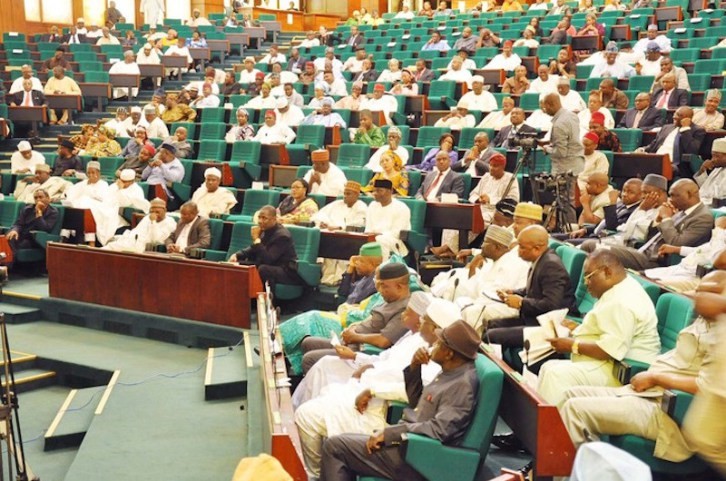The Senate has passed the Conference Committee Report on the harmonised Petroleum Industry Governance Bill (PIGB).
The bill was passed during plenary on Wednesday after Chairman, Senate Committee on Petroleum Resources, Upstream, Omotayo Alasoadura, presented a conference committee report on the bill.
The Senate and House of Representatives had on 19 March harmonised the PIGB.
The two chambers of the National Assembly set up the conference committee after the house of representatives passed theirs on January 17.
The bill, which seeks to unbundle the Nigerian National Petroleum Corporation (NNPC), is expected to be sent to President Muhammadu Buhari on Friday for his assent.
Speaking after the passage of the Conference Committee Report on the PIGB, Senate President Bukola Saraki commended his colleagues for the move.
“The challenge will and has always been on the need to get consensus on an issue as important as this one. However, today’s passage of this Conference Committee Report on the PIGB will also lay the foundation for other Bills that are coming,” Saraki said.
“We have once again shown investors both within and outside the country that this National Assembly is very responsible in the areas that have to do with the laws that govern our petroleum sector. I am sure that we will hopefully get the assent of Mr President and open a new page in Nigeria’s petroleum industry.
About the PIGB
The PIGB is primarily aimed at restructuring and reforming the oil sector by unbundling government controlled Nigerian National Petroleum Corporation (NNPC) and creating an independent agency tasked with effective operationalization and regulations of the sector. Some of the NNPC’s existing subsidiaries will be merged for ease of coordination and supervision.
The bill which will attract investors and open up the sector aims to establish the Nigerian petroleum regulatory commission as a one-stop regulator that will be responsible for licensing, monitoring, supervising petroleum operations, as well as enforcing industry laws, regulations and standards. This means that the bill is institutionalizing processes instead of residing powers in personalities as is the case. That means the president will no longer have the executive power to allocate oil blocks for example.
The PIGB will also restore business confidence and spark new interest in Nigeria’s oil industry and help resolve the issues that led to petrol scarcity, vis-a-vis the poor import planning schedule, corruption, diversion and smuggling as well as the absence of deregulation in the sector.
It would create a conducive business environment for petroleum industry operations by modernizing and overhauling the entire system in line with best practices. The bill will promote openness and transparency in the industry by clarifying the rules, processes, and procedures that govern the Nigerian oil and gas sector. This is expected to significantly reduce corruption in the sector and make it more efficient and productive.
Under the new law, it has been made mandatory that processes which can be made e-operations, must be digitalized. It prevents any agency to continue manual operations of processes that can be digitalized.






























